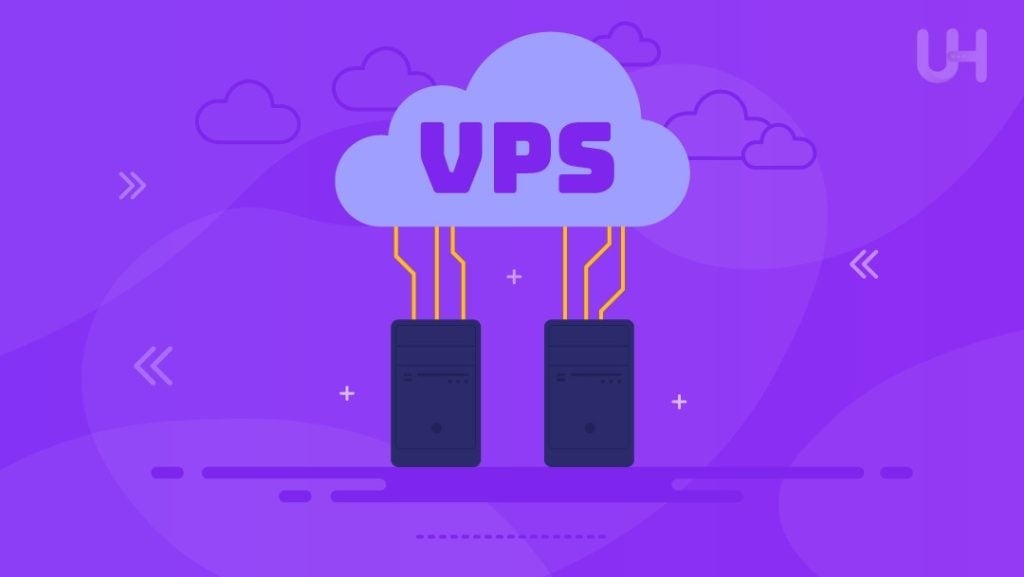High-traffic websites are growing rapidly, and businesses need robust hosting solutions to meet this demand. Studies show that online businesses with more visitors tend to generate higher revenue and brand visibility. Without proper hosting, issues like slow loading times or downtime can frustrate users and hurt a company’s reputation. VPS (Virtual Private Server) hosting offers a perfect solution by providing dedicated resources that boost speed and reliability.
Choosing the right web hosting is critical for maintaining fast performance, strong security, and a positive user experience. In this blog, we will explore the top benefits of VPS hosting for high-traffic websites. VPS hosting provides a reliable and scalable solution to ensure that your website stays fast, secure, and ready to handle growth.
Understanding VPS Hosting
VPS (Virtual Private Server) hosting is a type of web hosting, in which a physical server is divided into several virtual servers; each virtual server works separately and has dedicated resources like CPU, RAM and storage. It combines the benefits of shared hosting, which is inexpensive, with that of dedicated hosting, having control as well as performance. VPS hosting provides virtuality, acting like a standalone server, offering greater customizability, better performance, and more security than shared hosting.
VPS offers more control and performance than shared hosting while being more affordable and easier to manage than dedicated hosting.
Shared hosting is very popular as it supports multiple websites on one single physical server. The websites share the resources of the server, such as CPU, memory, and bandwidth. Thus, if one of the websites gains heavy traffic, it can interfere with the others within the same server. On the other hand, shared hosting is very cost-effective, which makes it perfect for small websites or blogs. However, there are some limitations: slower speeds, fewer security options, and fewer customization possibilities-features that may not be suitable on high-traffic websites.
Dedicated Hosting
Dedicated hosting offers customers an entire physical server, for which they hold exclusive rights. This implies that all the resources of a server are used exclusively by a single website guaranteeing maximum performance, security, as well as customization. Dedicated hosting is feasible only for big resource-intensive websites. On the other hand, it is very costly. In addition, users require technical knowledge to manage dedicated servers which makes it much more challenging for users who lack expertise in advanced IT know-how. VPS hosting is a middle ground: providing numerous benefits of Dedicated hosting with much lower prices as well as easier management.
How VPS Works

VPS works by using virtualization technology to create multiple isolated virtual servers on a single physical server, each with dedicated resources.
Virtualization Technology
VPS Hosting relies on virtualization technology that creates separate virtual servers on one physical server. Every virtual server operates independently as if it were a stand-alone server. This is possible by using hypervisors, which are specialized software that divide the physical server’s resources between virtual servers. The hypervisor ensures that every VPS operates in isolation; thus the actions of one VPS will not affect other VPSs on the same server. This has the advantage of higher security and performance than shared hosting.
Resource Allocation
VPS hosting means assigning resources in terms of CPU, RAM, storage, and bandwidth to every virtual server. Unlike shared hosting, where resources get pooled together with the distribution done between all users, VPS offers dedicated resources to each user. Hence, each site performs to its optimal capacity as it is guaranteed access to a portion of the resources of the server. The second is VPS hosting. Here, users can upscale their resources in case the website traffic grows; this ensures a user-friendly experience even with spikes in traffic.
Ready to Boost Your High-Traffic Website’s Performance
With Ultahost’s VPS hosting, you’ll enjoy dedicated resources, enhanced security, and seamless scalability. Don’t let slow speeds hold you back—unlock your site’s potential today! Explore our VPS hosting plans now!
Scalability
In the context of web hosting, scalability refers to the capability to expand or contract resources such as CPU, RAM, and bandwidth. This depends on the requirements of a website. Scalability is important to high-traffic websites because it allows the website to handle different volumes of traffic and not show problems with performance or downtime. A scalable hosting solution can grow with the website as more people visit.
Benefits of VPS Scalability
VPS scalability allows websites to easily adjust resources to handle traffic changes without downtime, ensuring optimal performance.
On-Demand Resource Allocation
VPS hosting is flexible even in handling additional resources based on traffic demands. Since sometimes, the traffic could build up instantly, and thus you will need more CPUs, memory, or storage without interruption, VPS can add more with no downtime. This flexibility ensures your website is responsive and fast even when people are visiting your site in large numbers. Conversely, when traffic dwindles, you can reduce the resources also to save on cost.
Support for Traffic Spikes
Businesses often receive sudden traffic surges when it comes to running promotion deals, new product launches, or seasonal events. VPS hosting is apt for handling this kind of spiking because it can instantly scale to allocate more resources. Whether it’s the promotion for an e-commerce sale or a viral marketing campaign, your website will be stable and perform well under high loads of traffic. This ensures that there will be no slowdown or crash during peak time by keeping users satisfied and enhancing conversions.
Performance and Speed
VPS hosting significantly improves website performance by providing dedicated resources like CPU and RAM, leading to faster load times. Additionally, features such as SSD storage and caching mechanisms further enhance speed and efficiency, ensuring a smooth user experience.
Importance of Website Speed
Website speed is one of the crucial determinants of user engagement. Online research shows that, for mobile devices, 53% of users leave websites that take more than three seconds to load. A slow website may result in high bounce rates whereby visitors abandon the website before interacting with the content. Instantly, website speed will also determine the conversion rates. For instance, a page load time increase of just one second decreases conversions by up to 20%. A fast website also ranks better in search engines. Since Google considers site speed among the ranking factors, slower sites can lose in search results. Generally speaking, a fast website increases your visitors’ satisfaction and business performance.
How VPS Enhances Performance
VPS enhances performance by providing dedicated resources, utilizing SSDs and caching mechanisms, and enabling integration with Content Delivery Networks (CDNs) for faster content delivery.
Dedicated Resources
VPS hosting comes with dedicated resources, such as CPU, RAM, and disk space. Unlike the case with shared hosting, where you share the same resources to take on websites, the use of VPS means every virtual server has its fair share. The configuration usually results in faster load times, since resources need not be competed for. Therefore, such sites can take on requests quite quickly and efficiently, ensuring ease of user operation. High-traffic sites thus need consistent performance.
Optimized performance
VPS hosting often relies on more advanced technologies to boost performance. For instance, most VPS hosts replace the traditional hard drives with solid-state drives, which are many times faster than the older technology. Furthermore, sites hosted on VPS servers can make use of caching. Caching is a mechanism that stores bits frequently accessed into memory so that they are served faster, without the need for reprocessing. These optimizations guarantee that the user will get a fast response from the site.
Geographical Distribution
VPS hosting can even be integrated with Content Delivery Networks. CDNs distribute content across multiple servers found across different geographical locations. Once a user brings a site online, that user gets served the content from the nearest server. This reduces latency but allows for fast load times, at least on behalf of users that are far from the server in question. Harness the power of CDNs to deliver the best possible speed for content delivery using VPS hosting.
Enhanced Security
Where high-traffic sites are concerned, there are several advantages. However, they have proved to be a crucial factor in the security analysis of modern networks. Some of the common threats to such websites based on their operations and reputation are DDoS attacks. In this DDoS attack, for instance, thousands or even millions of compromised systems flood a website with traffic, leaving it unreachable for valid users because it crashes. This results in huge downtime, frustrating users, and even lost sales.
Another key issue is data breaches that allow hackers to gain unauthorized access to confidential data. This can include details about customers, financial information, or proprietary business information. Data breaches can have serious impacts, from identity theft for users to a loss of confidence for the business in question.
Financial and Reputational Impacts
It also causes a huge financial loss in case of security incidents. Normally, it takes quite a lot of money and time to recover from such attacks. Businesses incur the expenses of hiring cybersecurity specialists and buying new security implementations. Moreover, lost revenue due to downtime in an attack might cause a huge loss to the company.
Damage to reputation may even be worse. Customers expect their information to be secure. In case of a breach, any website may experience negative publicity as well as erosion of customer trust. According to different studies, 60% of consumers will stop using a business after a data breach. Gaining this trust again takes years and involves investing considerable amounts in marketing and public relations. Therefore, robust security measures are the paramount importance for high-traffic websites.
VPS Security Features
VPS hosting enhances security through resource isolation, reducing the risk of breaches caused by other users on the same physical server. It also allows for custom security configurations, including firewalls and intrusion detection systems, ensuring robust protection against threats. VPS hosting offers enhanced security features, such as isolated virtual servers and dedicated IP addresses, which reduce the risk of security breaches compared to shared hosting environments.
Isolation
Isolation is one of the key advantages in the security area of VPS hosting. In VPS, each virtual server runs separately and with dedicated resources like CPU, RAM, and storage. This limits your server from the influence that the other users’ activities on the same physical server might have over it. Assume if someone’s website gets hacked or has a security breach; this VPS will not get affected. This also reduces the chances of malware spreading or data breach, hence this VPS hosting is much more secure than shared hosting, where multiple websites are allotted to resources and vulnerabilities are shared among them.
Custom Security Configuration
Custom security configurations can be achieved through VPS hosting. Because users can configure firewalls specific to their needs, they can block access and control traffic from potential unauthorized users. Through the VPS option, support is also available for the setting up of an IDS, which monitors traffic for suspect behavior and alerts the administrator when a breach has occurred. Other custom security policies such as password rules and who may access the server can also be implemented. Advanced security options enable businesses to create a defense mechanism that suits their specific requirements for enhanced protection.
Scheduled Backups and Updates
Most VPS hosting services offer automatic backups and updates as a standard provision, thus providing great security for your site. This will ensure that any data you may have on your website is saved regularly, making it possible to recover swiftly in case of a loss or cyber attack. In case of an attack, having a recent backup will help minimize downtime and reduce damage. These are highly secure software updates from leading VPS providers, helping patch up vulnerabilities and enhance server security. Keeping your system updated will safeguard against new and evolving threats. It will keep your website protected from potential exploitations.
Customization and Control

Need for Customization
Most high-traffic websites have specific needs that would require some special configurations to run them efficiently. For example, there may be a requirement to run certain specialized software applications that can’t be supported on standard hosting platforms. The scripts, databases, or specific types of caching solutions may also be required to handle more complex transactions or higher volumes of visitors. Shared hosting is not adequate for such configurations. On the other hand, VPS hosting provides customizations as required to meet the requirements of a website to perform optimally.
Benefits of VPS Customization
VPS customization allows users to have root access, enabling complete control over server configurations and settings. Additionally, it offers the freedom to install tailored software solutions and optimize performance based on specific traffic patterns.
Root Level Access
The most outstanding benefit of VPS hosting is access to the root. This makes it give direct access to advanced users. Advanced users can configure the server environment exactly as they require, free of any form of restrictions. This level of access is crucial for high-traffic sites that need to personalize security settings, optimize performance, or run certain applications. It enables businesses to change their settings, install custom software, and even manipulate the operating system to ensure the server meets specific specifications.
Software Installation
VPS hosting empowers the client with the freedom to install and run any software or applications they may need. Unlike shared hosting, where the number of options for available software is limited, VPS enables website owners to install customized solutions that best suit their business requirements. Be it specialized e-commerce platforms, content management systems (CMS), or CRM tools, VPS comes with flexibility. That way, high-traffic websites can operate with the right tools they need to manage traffic, sales, or data properly.
Performance Optimization
Fine-tuning is possible with VPS since the user is in control of the settings of a server and therefore their performance. Website owners can guarantee that the server is adjusted in such a way that its parameters perfectly correspond to the peculiarities of traffic and usage. That will reduce several bottlenecks in major load surges of visitors. The server will thus be optimized toward functionality, making it both functional and productive at peak levels while providing a smooth and responsive experience to users.
Explore Affordable VPS Hosting Plans Today!
Ultahost offers cheap VPS hosting plans without compromising on performance or security. Experience the benefits of dedicated resources and superior support tailored to your needs. Check out our budget-friendly VPS hosting options today!
Cost-Effectiveness
Significant traffic loads on websites incur very huge budgets. High-traffic websites require consistent performance, speed, and uptime to sustain users’ interest. Downtime can translate to substantial revenue loss, especially for an e-commerce business, where a few minutes lost during peak hours translate to thousands of dollars. For instance, with poor performance, there is also the load time that will send the user away, lost conversions, or perhaps sales from such sites. Such high-traffic websites also have to consider security since it can be an expensive affair and might cost much in terms of reputational damage.
Value of VPS Hosting
VPS hosting offers a cost-effective solution by balancing performance and affordability, making it ideal for high-traffic websites. It provides dedicated resources and security features, reducing the risk of downtime and improving overall website efficiency.
Cost Comparison
VPS hosting balances performance with affordability. While shared hosting is quite inexpensive compared to relatively pricey VPS, it comes with much better performance and security. Shared hosting, although cheaper, cannot fulfill the demands of more voluminous websites with stronger traffic and can cause downtimes and slowdowns. Dedicated hosting, on the other hand, will offer the highest achievable performance. But at a price that is significantly much higher. VPS is in the middle, between shared and dedicated hosting. provides dedicated resources, much like a dedicated server, but at lower prices. This makes VPS an ideal solution for websites that require reliability and speed but come without the hefty price tag of dedicated hosting.
Long-Term Savings
A good investment in VPS hosting can ensure some serious long-term savings. With VPS, websites rarely encounter performance issues and experience less downtime, meaning more traffic consistency and higher conversion rates. The advanced security features also mean no increased expenses on the costs of having to recover from a data breach or cyber attack. Additionally, as traffic grows, VPS can scale its resources without switching hosting solutions; hence it saves the firm costs on migration and setup. VPS saves the firm money in the long run with better security and performance.
Improved Reliability and Uptime
VPS hosting typically guarantees higher uptime rates, ensuring that websites remain accessible even during high traffic. Redundant systems and monitoring tools further enhance reliability by quickly addressing potential issues before they affect performance.
Importance of Uptime
Uptime is crucial for the trust of the user and the success of the business at large. Most times, a website that frequently goes down or is slow frustrates the users, and therefore, the experience is bad, and trust is lost. In e-commerce, loss in terms of sales happens directly as visitors just leave the site if they do not receive access. Furthermore, uptime can determine SEO rankings as it appears that search engines favor sites that are reliable and available. Even a little downtime can negatively impact your rankings. Findings by studies reveal websites that achieve 99.9% uptime perform way better in terms of traffic and engagement metrics than similar sites that possess a lower uptime.
Reliability of VPS Hosting
VPS hosting offers higher reliability by providing dedicated resources that reduce the risk of downtime compared to shared hosting. It also includes failover options and redundancy systems to ensure continuous uptime.
Higher Uptime Rates
VPS hosting is said to provide higher uptime rates than shared hosting. For example, shared hosting distributes the resources like servers to various users. There is a high chance of experiencing downtime since your activities depend upon that same server. VPS works towards dedicated resources for your website, thus lowering the probability of hitting downtime because of some other activities on other websites. Most of the service providers guarantee a range starting at 99.9% uptime and higher to ensure that the website stays working under high traffic and stays accessible to users at all times.
Redundant Systems
Often, providers of VPS hosting use redundant systems that guarantee higher uptime reliability. Redundancy provides a backup in case a primary server fails. This can include hardware, network connections, or power supplies. If one component fails, the redundant system automatically takes effect and continues providing service uninterruptedly. Failover options also ensure that your site is quickly transferred to another server in case something serious occurs, thus ensuring your site remains accessible with minimal downtime.
Monitoring and Notifications
Most monitoring tools usually follow the performance of a server for potential problems in real-time. These tools give alerts when something goes wrong, thus allowing prompt action to be taken before the problem can escalate. Automated alerts will warn the server administrators of bottlenecks in the resources, hardware failures, or security threats, thus offering quick response time and preventing any downtime. Such monitoring happens at this level to make sure that websites are under reliable web hosting.
Support and Maintenance
VPS hosting provides flexible support options, including managed services for maintenance and troubleshooting. 24/7 support ensures quick resolution of technical issues, minimizing downtime and keeping websites operational.
Need for Technical Support
High traffic may require technical support at some point; most importantly, it does in cases of emergencies and technical failures. For example, if a website is experiencing a period of downtime or security breakdowns, or if the performance of a website has deteriorated, every minute counts. In such a case, expertise may be called upon quickly to remedy problems that, by precious time, would cost money loss, and damage to the reputation of such a business. If reliable technical assistance does not arrive on time, issues remain unsolved for a considerable period and affect the performance of the web page in question, the viewability of the web page, and the business reputation. Such sites require high expertise to maintain their site working at its maximum potential all the time, especially when major traffic is experienced.
VPS Support Options
Most VPS hosting providers offer 24/7 support, including technical assistance, troubleshooting, and server management help. Managed VPS plans often include more comprehensive support, while unmanaged plans may require more self-management.
Managed vs Unmanaged VPS
While under VPS hosting, there are two forms of general support: managed vs unmanaged hosting. Managed VPS hosting involves having the hosting provider take care of server maintenance, security updates, and general technical troubleshooting. That would be perfect for businesses that never had the necessary technical know-how to manage the server. The main drawback is that it usually costs more due to the provided support services.
An unmanaged VPS gives the users complete control of their server, but all the maintenance and troubleshooting of the server has to be done by the user. The expense is low, but such a hosting arrangement demands a lot of technical knowledge. The user has to set up the server, update the security updates for it, and solve the issues that arise. Although the unmanaged VPS allows for a more flexible and controlling approach, it can be burdensome for those who are less qualified in server management.
24/7 Support
Many VPS services offer 24/7, round-the-clock support to minimize downtime and solve technical issues as soon as possible. With a high-traffic website, issues are likely to arise at any moment in time and, if unresolved, would take significant losses. For that reason, most of the service providers of VPS offer 24/7 technical support through various means such as live chat, phone, or e-mail. This gives businesses an easy way to reach technical experts whenever there is a problem. This diminishes the possibility of instances of prolonged periods when the website goes offline because experienced support staff are always available to keep a very smooth-running website running during high traffic or technical emergencies.
Conclusion
VPS hosting offers numerous benefits for high-traffic websites, including improved performance, scalability, and security. With dedicated resources, fast load times, and enhanced reliability, VPS ensures websites can handle growing traffic demands efficiently. Additionally, the customization options and robust security features make VPS hosting a perfect solution for businesses that need control and flexibility without the high costs of dedicated servers.
Investing in VPS hosting is a smart move for businesses looking to optimize user experience and website uptime while reducing downtime risks. It provides a strong balance between cost-effectiveness and performance. To maximize your website’s potential, explore VPS hosting options or consult with a hosting provider to find a solution that fits your needs.
Optimize your e-commerce website with UltaHost’s specialized enterprise hosting server. Enjoy fast load times, reliable performance, and robust security tailored for online stores.
FAQ
What is VPS hosting?
VPS hosting provides dedicated resources on a virtual server for better performance and control.
How does VPS hosting benefit high-traffic websites?
VPS hosting enhances performance and stability, crucial for handling traffic spikes.
Is VPS hosting more secure than shared hosting?
Yes, VPS hosting is more secure due to resource isolation, reducing the risk of security breaches.
Can I customize my VPS hosting environment?
Yes, VPS hosting allows full customization of the operating system and software to meet specific needs.
How does VPS hosting support scalability?
It enables easy resource upgrades as traffic grows, ensuring seamless scalability.
What are the cost advantages of VPS hosting?
VPS is more affordable than dedicated hosting while providing dedicated resources for better performance.
How does VPS hosting compare to dedicated hosting?
VPS hosting is a cost-effective alternative, offering similar performance benefits at a lower price.










